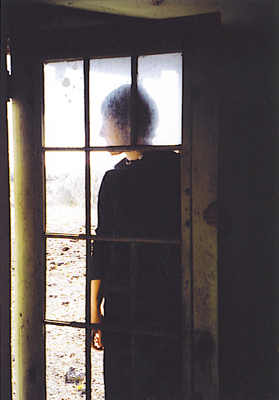All Nonfiction
- Bullying
- Books
- Academic
- Author Interviews
- Celebrity interviews
- College Articles
- College Essays
- Educator of the Year
- Heroes
- Interviews
- Memoir
- Personal Experience
- Sports
- Travel & Culture
All Opinions
- Bullying
- Current Events / Politics
- Discrimination
- Drugs / Alcohol / Smoking
- Entertainment / Celebrities
- Environment
- Love / Relationships
- Movies / Music / TV
- Pop Culture / Trends
- School / College
- Social Issues / Civics
- Spirituality / Religion
- Sports / Hobbies
All Hot Topics
- Bullying
- Community Service
- Environment
- Health
- Letters to the Editor
- Pride & Prejudice
- What Matters
- Back
Summer Guide
- Program Links
- Program Reviews
- Back
College Guide
- College Links
- College Reviews
- College Essays
- College Articles
- Back
Agender Angst MAG
My name is Phoenix, and I am not a girl or a boy. I am a part of that gray area, that vast void between male and female that most people assume is empty.
It’s not.
I’m there, and I’m not alone. There’s an entire community of people who aren’t girls or boys, women or men – who identify as both, who identify as both and more, who switch every so often, who slide between, and everything else you can think of. We’re called non-binary people because we don’t fit the traditional male/female gender binary. We don’t want to conform to society’s rules. We can’t. We don’t want to be lumped in with one of two types of people we aren’t.
My parents, my teachers, strangers, they all assume I’m a girl.
I know I’m not.
I started trying to figure out my identity even before I learned the words for it. I remember saying in ninth grade, “I don’t want to be a boy or a girl. I don’t care. You can call me ‘she,’ you can use my birth name, but I don’t care.” Well, it turns out I do care. I wish I didn’t, but I hate the way I’m perceived as a girl. I hate being called by my birth name. I knew I didn’t really want a gender, but I’d never known there was a name for that: agender.
When I first heard about the operations some transgender people go through, I didn’t think it’d be odd to be in a different body, because I saw it like plastic surgery: purely cosmetic. I didn’t understand the social implications. I didn’t yet understand the idea of wanting certain physical traits and not wanting others.
But when I hit puberty, I wasn’t prepared for how I’d feel, even though I knew the basics of the changes I’d undergo. I was eager to “grow up,” but I didn’t know what becoming a woman would mean for me in society. I didn’t know that others would see me differently and start expecting me to be feminine. I never thought I’d grow up to hate my breasts, to bind them, to want them gone – and all this without my parents’ knowledge.
No amount of school-sanctioned health classes could have prepared me. How could they? Most people don’t know what “agender” means. The instant I realized I am not a girl or a boy, the world made sense. I chose a new name and a new set of pronouns. My new name sounds so much better to me – it flows well, it makes sense. I make sense.
I’m lucky to have friends who believe in my identity as I believe in theirs, but to most of the world, I and other non-binary people are invisible. I am suspended in that space between genders, locked in a position defined by ambiguity and androgyny and confusion, by gender roles and stereotypes, by society’s expectations for me, and by my expectations for society.
I get lost in the cascade of pronouns thrown at me, as if being called “he” or “she” will make me agree, make me say, “Yes! Those words are mine! Please use them for me!” Really, what’s helped is for me to choose my own terms – to throw them out into the world, out of the closet. “Yes! These are mine! Use them for me!”
But in the end, pronouns are not what’s important. I am not my gender. I am a person, and all I ask is to be treated like one.

Similar Articles
JOIN THE DISCUSSION
This article has 6 comments.

8 articles 0 photos 6 comments
Favorite Quote:
"I don't dress for your approval, boys." -Elphaba, Wicked by Gregory Maguire